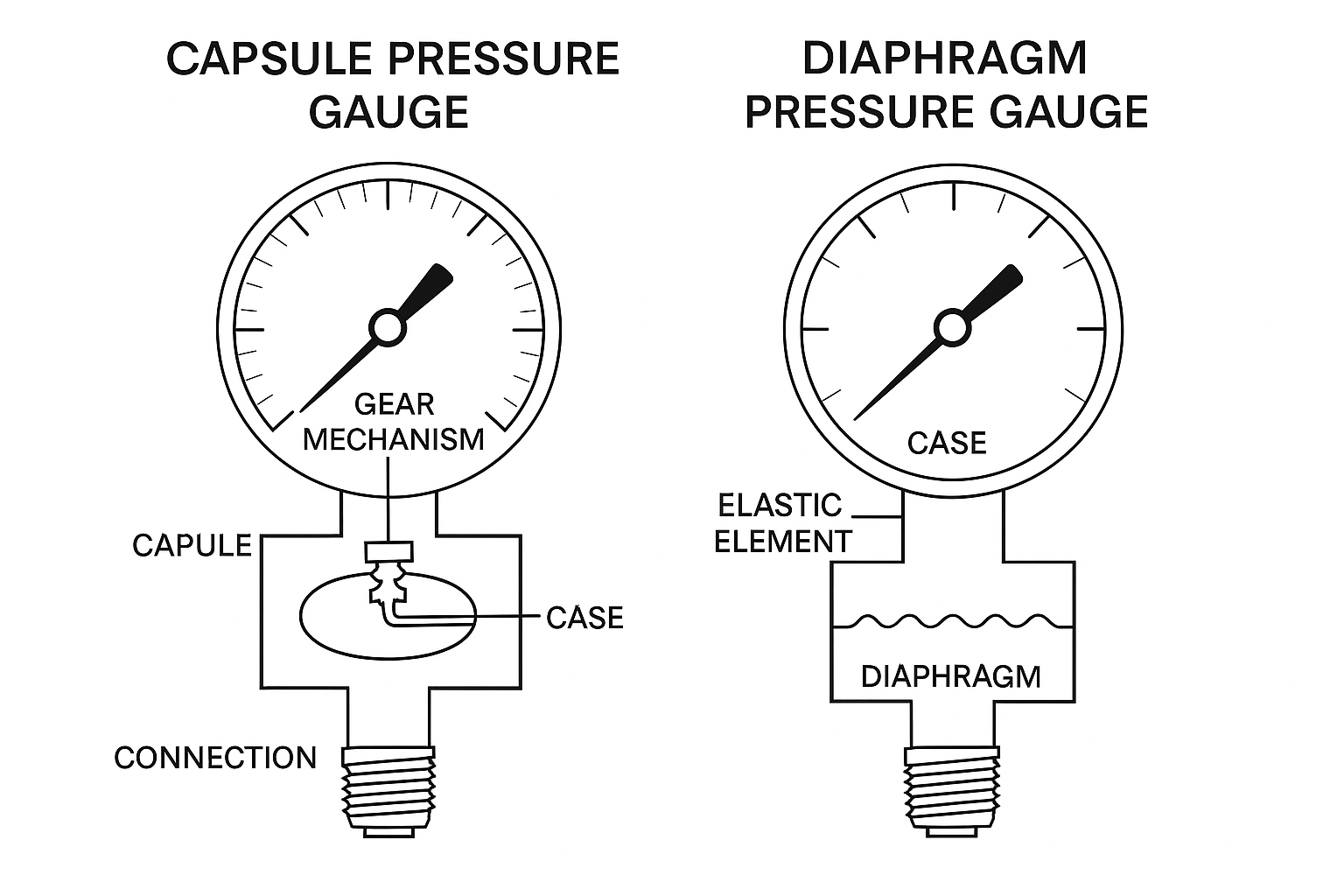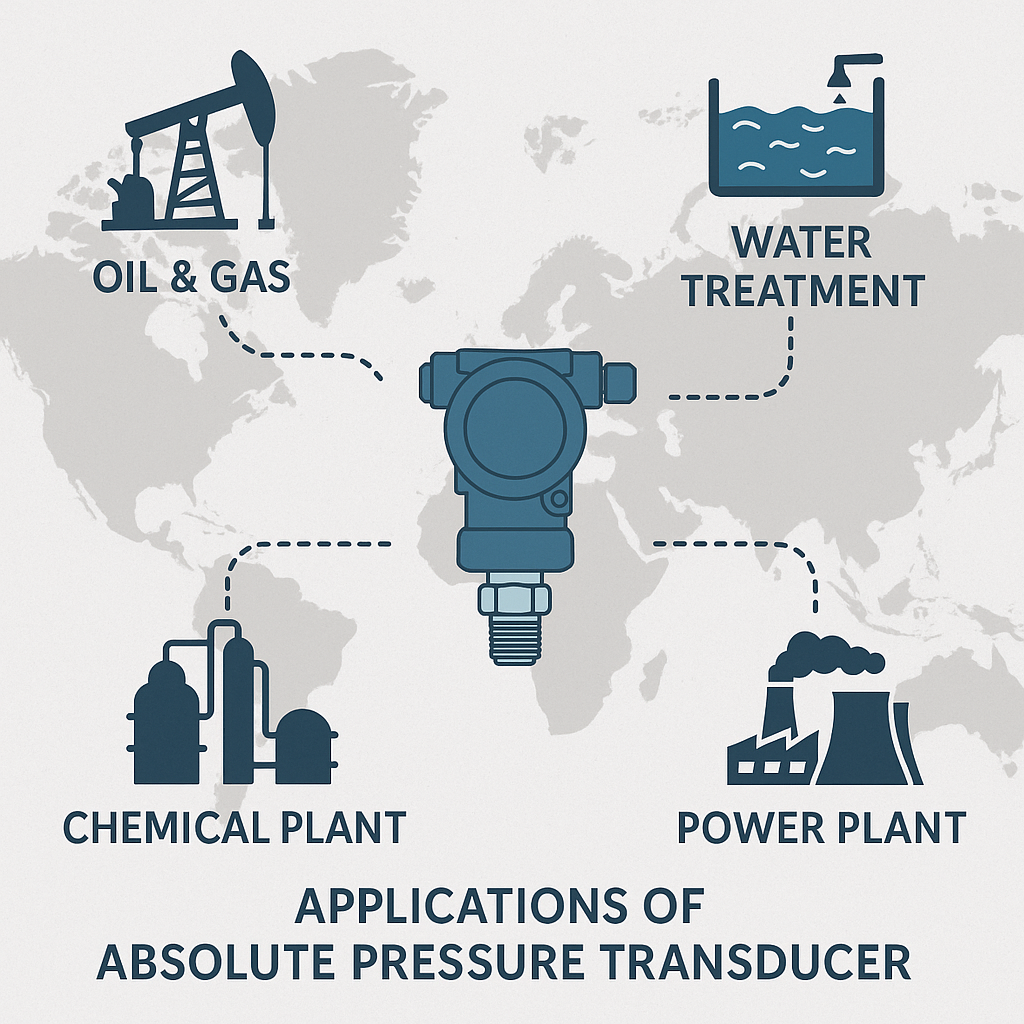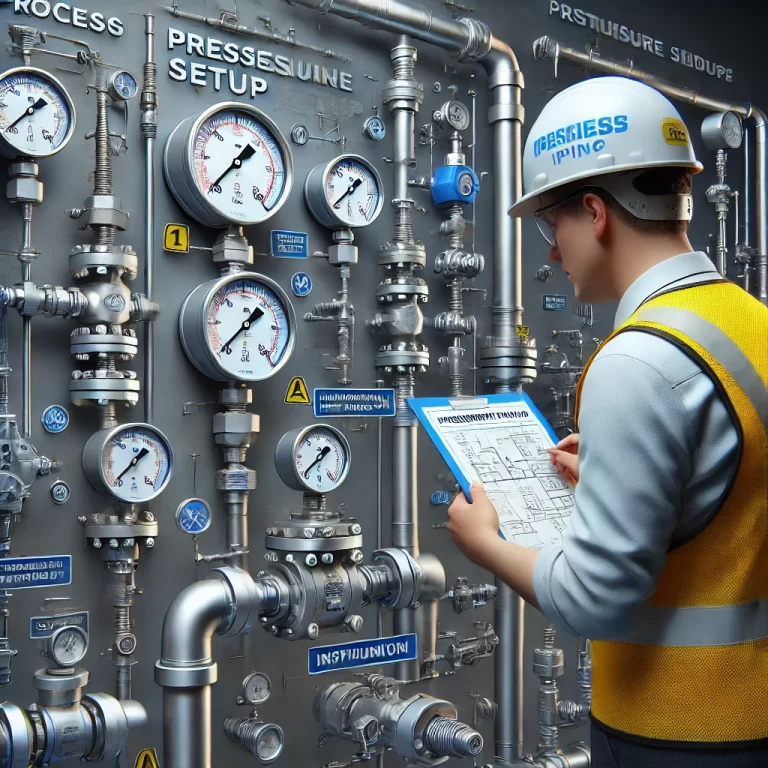1. Introduction
Pressure gauges are not universal instruments. Selecting the wrong type for a specific medium can result in corrosion, explosion hazards, or measurement failure. This document explains the selection requirements for pressure gauges used in acetylene, ammonia, oxygen, and hydrogen sulfide-containing media, referencing SH/T 3005-2016 and related international standards.
2. Applicable Standards
SH/T 3005-2016 – Petroleum and Chemical Industry Standard for Pressure Gauge Selection.
NACE MR0103 / MR0175 (ISO 15156) – Materials for H₂S service in oil and gas production.
GB/T XXXX – Oxygen pressure gauge requirements (degreasing).

3. Selection Requirements by Medium
3.1 Acetylene and Ammonia Media – Copper-Free Requirement
Reason:
Acetylene reacts with copper to form copper acetylide, a highly sensitive explosive when dry.
Ammonia reacts with copper to form copper-ammonia complexes, accelerating corrosion and causing leakage.
Requirement: Use dedicated acetylene or ammonia service pressure gauges with wetted parts free from copper or copper alloys.
3.2 Oxygen Service – Strict Degreasing and Oil-Free Requirement
Reason:
Oxygen’s strong oxidizing property causes oils and greases to ignite or explode under high-pressure oxygen environments.
Requirement: Oxygen service gauges must be completely degreased before use and remain oil-free during installation, calibration, and operation.
3.3 Hydrogen Sulfide and Sulfur-Containing Media – H₂S Corrosion Resistance
Reason:
High-concentration H₂S environments accelerate sulfide stress corrosion cracking (SSCC).
Requirement: Select H₂S-resistant gauges with wetted materials complying with NACE MR0103 or MR0175 standards.

4. Recommended Selection Table
| Medium | Recommended Gauge Type | Wetted Material | Special Requirements | Reference Standard |
|---|---|---|---|---|
| Acetylene | Acetylene service pressure gauge | Copper-free stainless steel (SS316L) | Marked “Acetylene” | SH/T 3005-2016 |
| Ammonia | Ammonia service pressure gauge | Copper-free stainless steel (SS316L) | Marked “Ammonia” | SH/T 3005-2016 |
| Oxygen | Oxygen service pressure gauge | SS316L / Brass (degreased) | Strict degreasing, oil-free | GB/T XXXX |
| H₂S / Sulfur-containing | H₂S-resistant pressure gauge | NACE MR0103-compliant alloy | Anti-H₂S certification | NACE MR0103 / MR0175 |

5. Installation & Maintenance Notes
Always confirm wetted materials with the process medium compatibility chart.
For oxygen gauges, avoid contact with oils, greases, or sealants that are not oxygen-approved.
In H₂S environments, periodically inspect for signs of sulfide stress cracking.
Replace pressure gauges immediately if pointer vibration, leakage, or lens fogging is observed.

6. Conclusion
Proper selection of pressure gauges for special media is critical for safety and measurement accuracy. Following SH/T 3005-2016 and related international standards ensures long-term reliability and prevents hazardous failures in acetylene, ammonia, oxygen, and H₂S applications.
